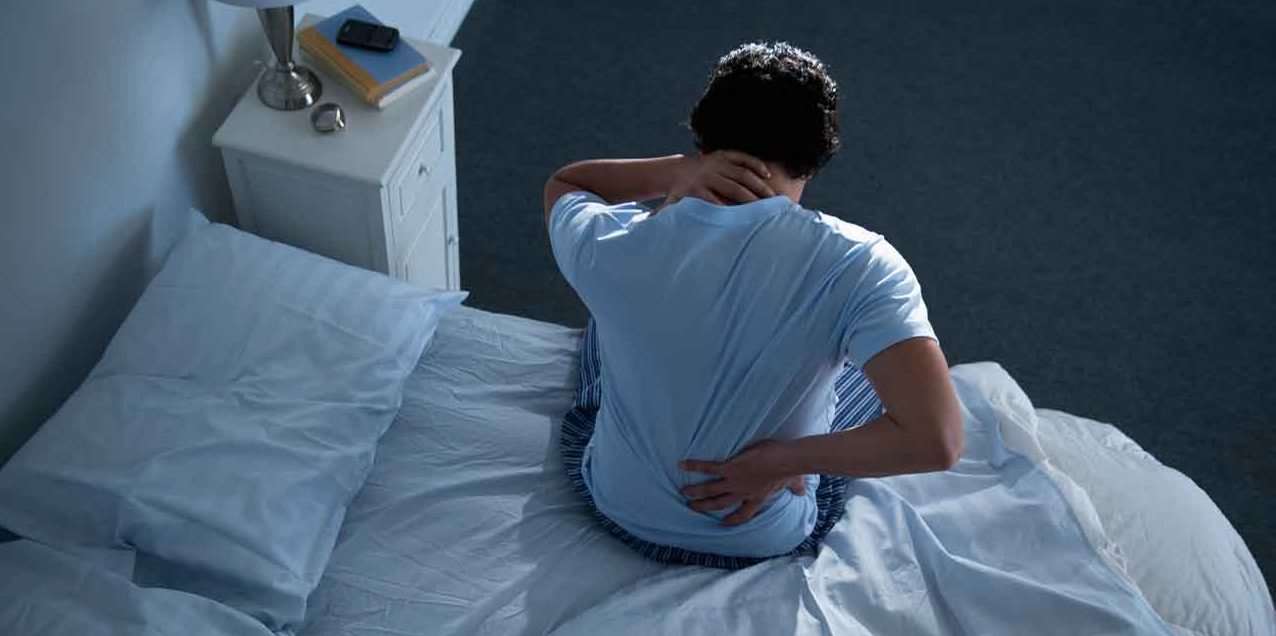7 Simple Fixes for Back Pain

Changes in everyday habits could help you feel better.
When we have pain, we want relief — now! But resist the temptation to rely on drugs as your total solution. In a new guideline, the prestigious American College of Physicians has advised doctors against prescribing opioids for back pain. The first remedies to try should be heat, massage, acupuncture, or a trip to the chiropractor. You might try drug store painkillers, including acetaminophen.
Once you’re not actively suffering, think about how to prevent the pain from coming back. About 80 percent of adults experience low back pain at some point in their lives. Often you’ll notice a back pain when you’re doing something slightly unusual — carrying luggage, for example — and don’t suspect that everyday habits could be the cause. You can also feel pain in one area that is caused by a weakness in another. For example, a pain in the front of your shoulder might originate in your back, says Paul Ingraham, the author of PainScience.com, an assistant editor at ScienceBasedMedicine.org and a registered massage therapist who specialized in difficult chronic pain cases for a decade.
Some simple changes can help. Other changes will require more attention, but are likely to improve your overall health.
YOU MIGHT ALSO LIKE: 7 Myths about Back Pain
Stand. A pain in your back, knee, or hip may be aggravated by weak buttock muscles, says Chris Kolba, a sports medicine physical therapist and clinical instructor at The Ohio State University Wenxer Medical Center in Columbus. The gluteal muscles in your rear absorb shocks and contribute whenever you are standing. If, like many of us nowadays, you spend a good deal of time sitting before a computer screen or behind a wheel, you’re more likely to have weak glutes and tighter hip flexor muscles. Other muscles in your body compensate and end up hurting. The same is true when you have weak abdominal muscles.
That’s why Kolba recommends that clients spend most of their time standing — you can try a standup desk and standing and pacing while talking on the phone or even while watching a movie or TV, at home. Stand on buses and trains, and try to walk rather than drive whenever possible
Develop routines that mean you have to get up from an office chair. Put a printer out of reach. Instead of taking your coffee to your desk, walk to a window and drink while standing and looking out the window. Walk to a colleague’s desk instead of emailing now and again.
Mind your posture while sitting. When you’re sitting with a laptop or before a computer, try to set things up so you’re not slouched over. Invest in a good chair with back support. Even children can get back pain if they spend too much time slouched over electronic games, some studies indicate, although children typically recover faster because they play, while adults usually don’t.
Don’t sit on a fat wallet. Sitting with one buttock slightly higher than the other too often can even cause sciatica, says Todd Sinett, a New York City chiropractor and author of “Three Weeks to a Better Back.” The answer: put your wallet in your front pocket.
Don’t carry a heavy bag on one shoulder. Many women feel more prepared if they bring medications and cosmetics with them whereever they go. You might carry around a laptop or gym bag. The answer: carry less if possible, use a backpack, or shift a bag to the other shoulder at least once during the day.
Wear shoes with good support. Sinett explains that flip flops in particular can cause problems in your heel and arch and force you to change how you walk, which can end up causing pain in your knees, hips, and lower back. High heels will stress your back, too.
Avoid stress. Sinett says that a stressed jaw can lead to back pain. Is it comfortable to open your mouth widely? Do you ever feel that your jaw is tight? Try a jaw guard from the drug store before you invest in an expensive customized guard from a dentist.
Use a knee pillow. Many people blame their mattresses for back pain. Try changing how you sleep. Your back will be happier if you sleep on your side with your knees bent and a pillow between them. You might also try a small tube-like pillow under your neck to better align your spine. If you must sleep on your back, put a pillow under both knees. If you still have back pain when you wake up in the morning, you might consider a new mattress, but first check whether your back feels any better when you sleep in a hotel for several nights.
Pain can be a signal that you need to make bigger changes. Quit smoking: cigarette smokers are more likely to have back pain. Losing weight, especially around your belly or breasts, can help. So can getting more exercise. Lack of sleep increases your sensitivity to pain, so see what you can do to get enough shut eye.
YOU MIGHT ALSO LIKE: Your Diet Can Be an Alternative to Painkillers
Updated:
March 27, 2020
Reviewed By:
Christopher Nystuen, MD, MBA